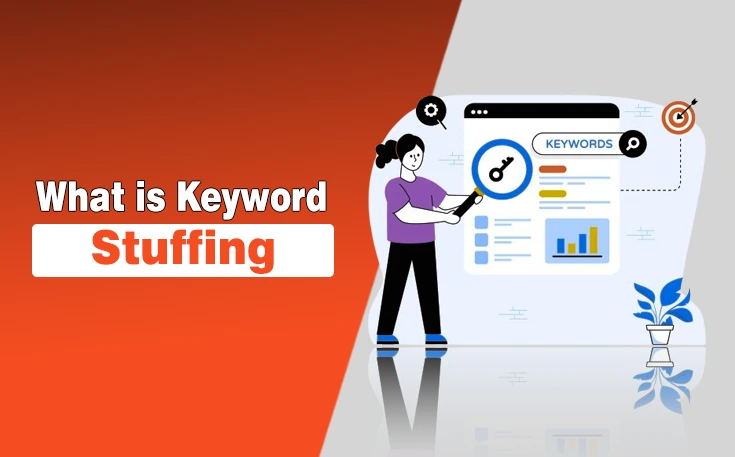Notion has become one of the most loved productivity and note-taking platforms in the world. I have personally used it for managing tasks, building knowledge bases, and even running small projects. However, as 2025 moves forward, I have noticed that Notion is no longer the only strong contender in this space. There are multiple apps like Notion that offer unique features.
And, in some cases, these apps even outperform Notion. In this blog post, I am going to take you through the top 10 best Notion alternatives in 2025, along with explaining their strengths and why you may want to try them.
What is Notion?
Notion is an all-in-one productivity and note-taking application that allows individuals and teams to organize their work in a flexible way.
It combines notes, documents, databases, task management, calendars, and collaboration tools in a single platform. I like to think of it as a digital workspace where you can build systems tailored to your needs, whether that’s a personal journal, a project tracker, or a team knowledge base.
Its drag-and-drop interface and customization options make it easy to design your workflow. Notion is widely used by students, professionals, and businesses for both personal and collaborative productivity.
Top 10 Best Apps Like Notion in 2025
List of 10 Best Apps Like Notion
- Obsidian
- Coda
- ClickUp
- Evernote
- Microsoft OneNote
- Trello
- Notability
- Quip
- Todoist
- Airtable
While Notion is an incredible all-in-one productivity platform and one of the best self deveopment apps, it is not the only option available in 2025. Different users have different needs, and sometimes a tool with a unique feature set works better than Notion. That’s why I have put together this list of the top 10 best apps like Notion.
Each of these tools offers something special, whether it’s advanced note-taking, project management, or collaboration features. Let’s explore them one by one so you can decide which app fits your workflow best.

1. Obsidian
Obsidian is one of my favorite apps for deep thinkers and knowledge workers. Unlike traditional note-taking tools, it allows you to connect ideas through backlinks and visualize them in a knowledge graph.
It makes your notes feel like a living web of information rather than isolated pages. Since it is an offline-first tool, you own your data completely, and customization through plugins means you can turn it into anything from a personal journal to a complex task manager.
Key Features
- Local-first storage with complete control over your notes
- Powerful backlinking and graph view for idea mapping
- Hundreds of community plugins for customization
- Markdown-based editing for simplicity and portability
- Cross-device sync available via Obsidian Sync

2. Coda
Coda takes productivity to the next level by blending the simplicity of documents with the power of apps. I love how it turns simple documents into interactive tools with tables, checklists, and even buttons. While Notion is primarily document-driven, Coda leans heavily into automation and integration.
These features make it especially effective for team-based workflows. Whether you are running a startup or just managing personal projects, Coda adapts with its Packs, templates, and collaborative features.
Key Features
- Documents that function like apps with interactive elements
- Packs for integrating third-party apps like Slack or Gmail
- Advanced collaboration tools with commenting and editing
- A massive library of ready-to-use templates
- Automation rules for workflow efficiency

3. ClickUp
ClickUp is more than just a task manager; it’s a full productivity suite. I personally find it useful because it combines task management, documents, goal tracking, and automation all in one place. The app is designed to replace multiple tools, saving both time and money.
For teams, it is especially powerful since it supports different views and makes it easier to adapt to different work styles. ClickUp also supports custom dashboards, which is a big win for project managers.
Key Features
- Multiple project views: List, Board, Gantt, Calendar
- Built-in Docs for note-taking and knowledge bases
- Goal tracking and time tracking features
- Automation workflows to save time on repetitive tasks
- Highly customizable dashboards for better project control

4. Evernote
Evernote has been around for more than a decade, but it has continued to reinvent itself to stay relevant. I appreciate its simplicity when it comes to capturing notes, images, and even voice memos. As compared to Notion, which may sometimes feel overwhelming, Evernote is quick and straightforward.
Its notebooks and tagging system make organization effortless. Plus, the app syncs across devices instantly, ensuring I never lose track of my notes, whether I am on my phone, tablet, or laptop.
Key Features
- Fast capture of text, images, and audio notes
- Notebooks and tagging system for structured organization
- Web clipper for saving online content instantly
- Cross-platform syncing for mobile and desktop devices
- Searchable notes with OCR (even in images and PDFs)

5. Microsoft OneNote
OneNote is one of the top Skype alternatives and it feels like a digital version of a physical notebook, which I find comforting. It allows free-form note-taking, meaning you can type anywhere on a page, draw diagrams, or paste images. If you’re already in the Microsoft ecosystem, OneNote integrates seamlessly with Office apps like Outlook, Word, and Excel.
That’s the reason this app is incredibly useful for students and professionals. Real-time collaboration makes brainstorming and meeting note-taking much easier, and its flexibility with sections and pages is unmatched.
Key Features
- Free-form canvas for typing, sketching, and media
- Deep integration with Microsoft 365 ecosystem
- Real-time collaboration with colleagues or classmates
- Sections and pages for easy organization
- Supports handwritten notes with stylus input

6. Trello
Trello is perfect if you’re a fan of visual organization. I enjoy how easy it is to see my workflow using boards, lists, and cards. It’s one of the most beginner-friendly productivity apps out there. Whether I’m managing a personal project or coordinating with a team, Trello’s drag-and-drop interface keeps things simple.
Over time, it has grown more powerful with automation features and integrations, making it useful for everything from managing events to software development.
Key Features
- Kanban-style boards for visual task management
- Drag-and-drop interface for ease of use
- Power-Ups for integration with apps like Slack and Google Drive
- Butler automation for repetitive task management
- Collaboration tools with assignments and due dates

7. Notability
Notability is a go-to app for people who prefer writing by hand or sketching ideas. I find it especially useful on an iPad with Apple Pencil since it feels natural and fluid. Students love it because you can record lectures while taking notes.
And later, your notes sync with the recording. It makes revision a lot easier. Notability also offers folders and subjects for organizing notes, and makes it equally practical for personal and professional use.
Key Features
- Natural handwritten note-taking with stylus support
- Audio recording that syncs with written notes
- Organization with folders and subjects
- Multi-media support for adding images and PDFs
- Cloud sync across devices for easy access

8. Quip
Quip, built by Salesforce, is an excellent alternative to Notion if you want collaboration at the heart of your workflow. I like how it combines documents, spreadsheets, and chat into a single interface. It eliminates the need to switch between apps while working in a team.
For businesses already using Salesforce, Quip’s integration is incredibly smooth. It’s especially useful for remote teams, as communication and collaboration happen in the same space where the actual work lives.
Key Features
- Unified workspace with docs, spreadsheets, and chat
- Real-time collaboration for teams
- Smooth Salesforce integration for businesses
- Task lists and project tracking within documents
- Mobile-friendly with offline support

9. Todoist
Todoist is one of the most reliable task management apps I’ve ever used. It might not have all the bells and whistles of Notion, but its simplicity is its strength. With Todoist, I can quickly capture tasks, organize them into projects, and even set recurring deadlines.
The app supports natural language input, which makes task entry super fast. For people who prefer a straightforward task manager that integrates with other apps, Todoist is an excellent choice. And that’s why I have added it among the best iPhone apps as well.
Key Features
- Quick task capture with natural language input
- Projects and labels for structured organization
- Recurring deadlines for routine tasks
- Integration with Google Calendar, Slack, and more
- Productivity tracking with Karma points

10. Airtable
Airtable combines the familiarity of spreadsheets with the power of databases, which makes it incredibly versatile. I enjoy using it for project tracking, content calendars, and even CRM systems. Unlike Notion’s databases, Airtable feels faster and more visual.
With its multiple views, including grid, kanban, gallery, and calendar, you can customize your workflow exactly how you want it. Airtable also offers automations and app integrations, and makes it suitable for both individuals and businesses.
Key Features
- Spreadsheet-like interface with database power
- Multiple views: Grid, Kanban, Calendar, Gallery
- Automations for repetitive workflow tasks
- App marketplace for extended functionality
- Strong team collaboration features

Final Thoughts
After exploring all these apps like Notion, it is clear that Notion may not be the only answer to productivity and organization in 2025. Each alternative I discussed offers something unique, whether it is Obsidian’s deep knowledge mapping, Coda’s document-to-app power, or ClickUp’s all-in-one project management.
Some apps focus on team collaboration, while others are perfect for individual note-taking and task management. The key is to find the one that matches your style and needs. I believe experimenting with these options will help you discover the perfect tool to keep your workflow efficient and stress-free.
Need custom app with amazing features?
Get a Quote




